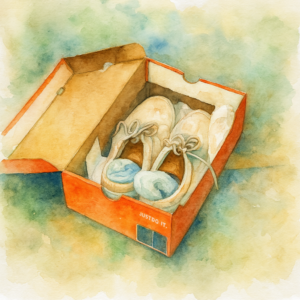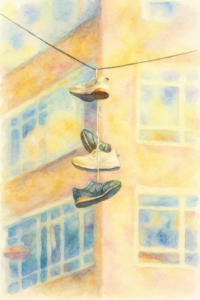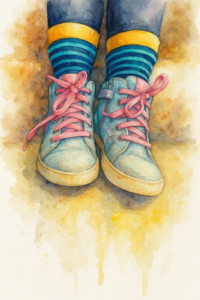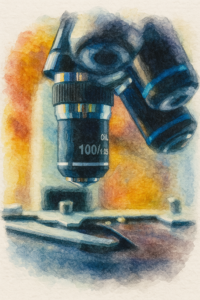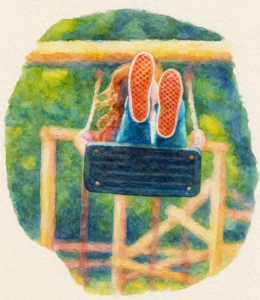Learn French with this clip from Les P’tits Bateaux. Find the full episode here. We do not own the content. The above audio sample and transcription is from Les P’tits Bateaux podcast. We do not own the content. Listen to the entire episode here. les baudriers What’s opening up for you with this clip? Comment…
Start quiz, type what you hear, then join the conversation.
Did you find this one challenging or easy? Did you hear something diffferent? What surprised you? What levels did you complete? Comment below and share what’s opening up for you with this quiz.
Learn French with this clip from Les P’tits Bateaux. Find the full episode here. We do not own the content.
The above audio sample and transcription is from Les P’tits Bateaux podcast. We do not own the content. Listen to the entire episode here.
les baudriers
What’s opening up for you with this clip? Comment below with what was surprising, easy, challenging and/or interesting.
The snippet in English
Find a translation of this snippet here, how much of this did you hear?
Et coucou les petites curieuses et les petits curieux, prenez les baudriers, les cordes et les chaussons !
Bonjour, je m’appelle Cléo, j’ai neuf ans, et je voudrais savoir : qui a inventé l’escalade ? Merci de me répondre, au revoir !
Et c’est avec plaisir que l’historien du sport, Fabien Archambault — qui vient de t’entendre, Cléo — va te raconter qui a inventé l’escalade donc
Hello, curious girls and boys, grab your harnesses, ropes and shoes!
Hello, my name is Cléo, I’m nine years old, and I’d like to know: who invented climbing? Thanks for answering, bye!
And sports historian Fabien Archambault – who’s just been listening to you, Cléo – will be delighted to tell you who invented climbing.
The above translation from Deepl
What does “coucou” mean?
Coucou is an informal, playful French greeting meaning hi or hey there. It’s friendly, light, and often used to grab attention gently — like a wave or a cheerful tap on the shoulder.
Coucou, ça va ?
(Hey there, how are you?)
– Often used between friends, family, or with children
– More intimate and spontaneous than bonjour
– Can be written in texts, spoken aloud, or even whispered
– Not typically used in formal situations or professional settings
French kids say it naturally, and adults use it to sound warm or endearing. It’s common across France, but might sound childish or overly familiar elsewhere, like in Canada, where salut or allo are more typical. Though, in my own experience, it seems that “coucou, c’est moi” does carry some creepy undertones in France, use with caution!
What does “les baudriers” mean?
Les baudriers means the harnesses — usually referring to safety gear worn for climbing, construction, or certain work environments.
– baudrier = a safety harness, especially one worn around the waist and legs
– Common in climbing, tree work, adventure parks, and industrial safety
– In older or literary French, baudrier could also mean a shoulder belt for carrying a sword (now rare)
Widely used in France and other French-speaking countries for any activity requiring secure gear or belaying.
What does “merci de” mean?
Merci de is the standard French way to say thanks for when followed by a verb or an action.
It’s typically used with an infinitive verb: merci de venir (thanks for coming), merci de m’avoir aidé (thanks for helping me).
You can also use it with a noun: merci de ton aide (thanks for your help). It’s considered a bit more formal or polished than other options and is preferred in writing, signage, or polite contexts.
Merci pour is more commonly used with nouns, especially in casual speech: merci pour le cadeau (thanks for the gift), merci pour le gâteau (thanks for the cake).
Some speakers also use it with verbs (merci pour m’avoir aidé), but that’s less formal and not preferred in careful writing.
Merci de venir (Thanks for coming)
Merci d’être là (Thanks for being here)
Merci pour le gâteau (Thanks for the cake)
Merci de m’avoir écouté (Thanks for listening)
Merci pour ton message (Thanks for your message)
In France, merci de is stylistically preferred when followed by a verb; in Quebec, merci pour is widely accepted in all cases.
Les P’tits Bateaux Podcast
Official synopsis: Les enfants posent des questions, des spécialistes leur répondent. Jeunes (et moins jeunes !) peuvent poser toutes les questions possibles et imaginables directement par message vocal via franceinter.fr, sauf pendant les vacances.
I recently discovered this podcast from InterFrance and love it. It’s kids posing questions and the host brings in experts to explain. And it’s aimed at young French kids, not French learners. That’s my favorite kind of content. Being for French kids is what makes it so good.
You’ve got real people (a kid, a host, and an expert), all speaking real French — no AI generated stuff here. The kid asks a question, and then an expert explains it in short, clear language. There’s a ton of repetition, natural turns of phrase, and just enough challenge to keep your ears working.
And because it’s meant for French-speaking kids, the adults naturally explain things simply but not condescendingly. You get exposed to rhythm, tone, interjections (bah, ben, alors), and full sentences — but also some real dialogue dynamics. And that’s gold if you’re trying to move from textbook filler to actually speaking and thinking in French.
Improving your French Listening Comprehension with Podcasts
On this site, fast spoken French is finally accessible to all levels. The tool break podcasts into short clips each set to transcription fill-in-the-blank practice. My favorite practice in class is always dictées. While they can seem overwhelming at first, the confidence boost and skills payoff for doing the work pays off. They’re perfect for anyone at any level, from advanced students to those just starting.
We use podcasts and our practice exercises to make it possible for anyone, anywhere to immerse in French with fun and ease. Join us and enjoy French, one short clip at a time. Let’s learn together!
Make the most of the site:
- Daily Podcast Listening: Start your day with a French podcast from our collection. Choose episodes that align with your interests to keep it engaging.
- Active Listening Practice: As you listen, try to pick out key phrases and vocabulary. Use our daily quizzes to test your understanding and reinforce learning.
- Repeat and Shadow: Listen to the same podcast segment multiple times. Try to mimic the pronunciation and intonation to improve your spoken French.
- Note-taking: Jot down new words or phrases you encounter. Review these notes regularly to enhance vocabulary retention.
- Reflect and Respond: After each episode, summarize the main points in French, either in writing or aloud. This helps in consolidating your learning and improving your expressive skills.
- Read More:
- True Beginner or A1 Learners: discover tips learning with podcasts at an introductory level.
- Discover all the podcast clips on FrenchIRL organized by level.
- Top Tips: Here’s how I make the most of my own site.
I created the French In Real Life project because I wanted to understand more than just my teacher and youtubers who cater to learners. I wanted to understand the French I hear in France. I hope you can benefit as much as I have. Become a supporting member for access to all clips.
What’s opening up for you?
Comment below with what’s opening up for you with this clip. What do you love about this? What was challenging? What was easy? Share your learning progress below!
Learn French with this clip from Les P’tits Bateaux. Find the full episode here. We do not own the content. The above audio sample and transcription is from Les P’tits Bateaux podcast. We do not own the content. Listen to the entire episode here. les baudriers What’s opening up for you with this clip? Comment…
Start quiz, type what you hear, then join the conversation.
Did you find this one challenging or easy? Did you hear something diffferent? What surprised you? What levels did you complete? Comment below and share what’s opening up for you with this quiz.


